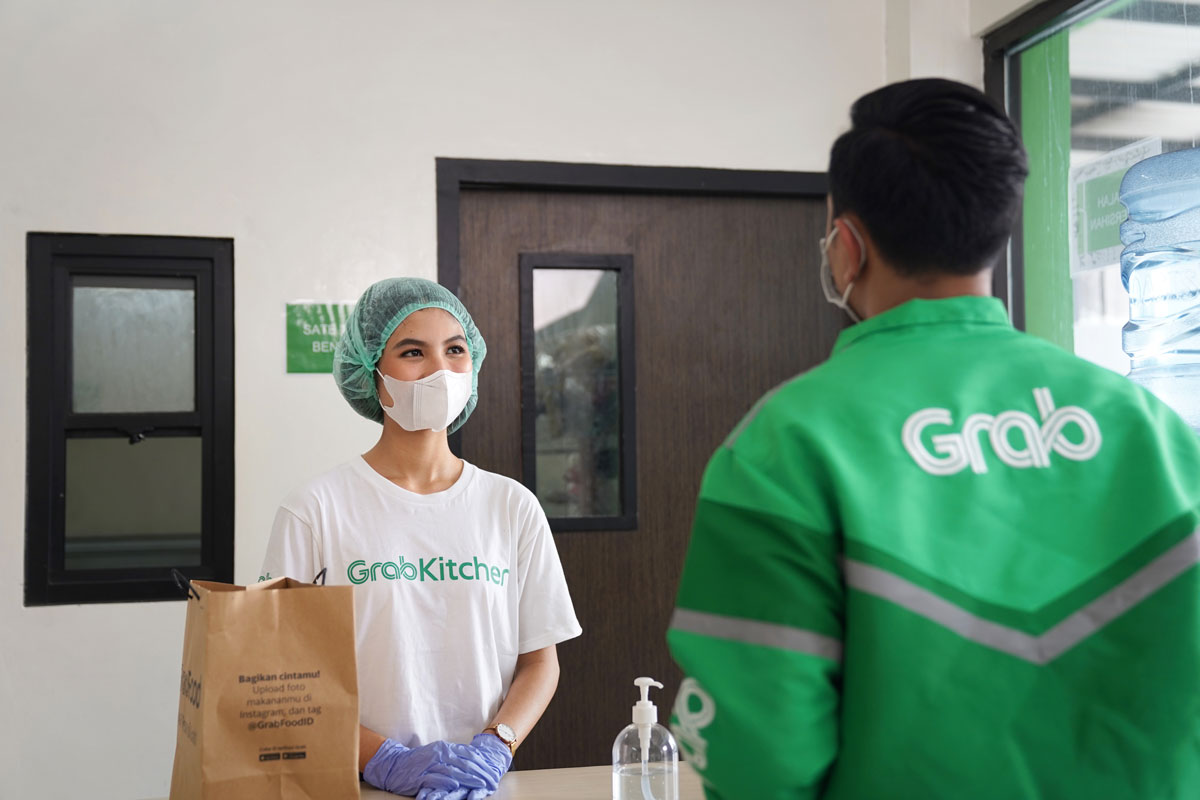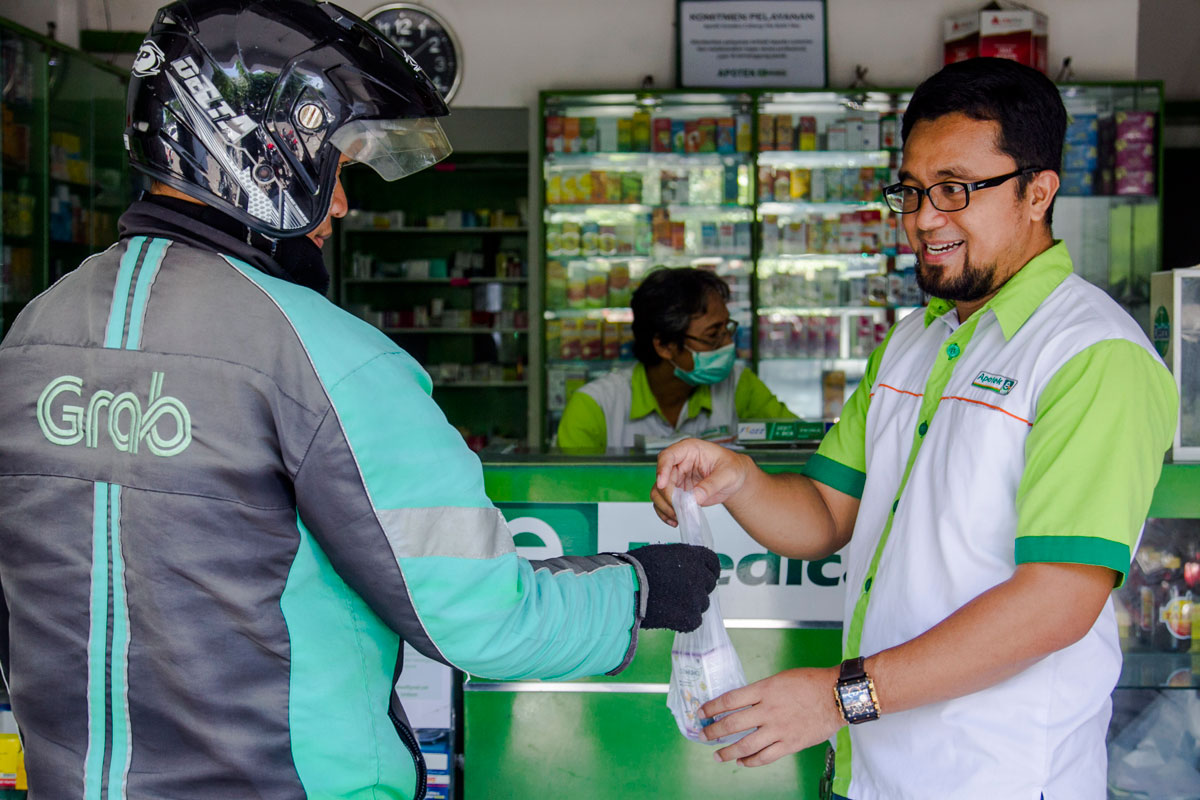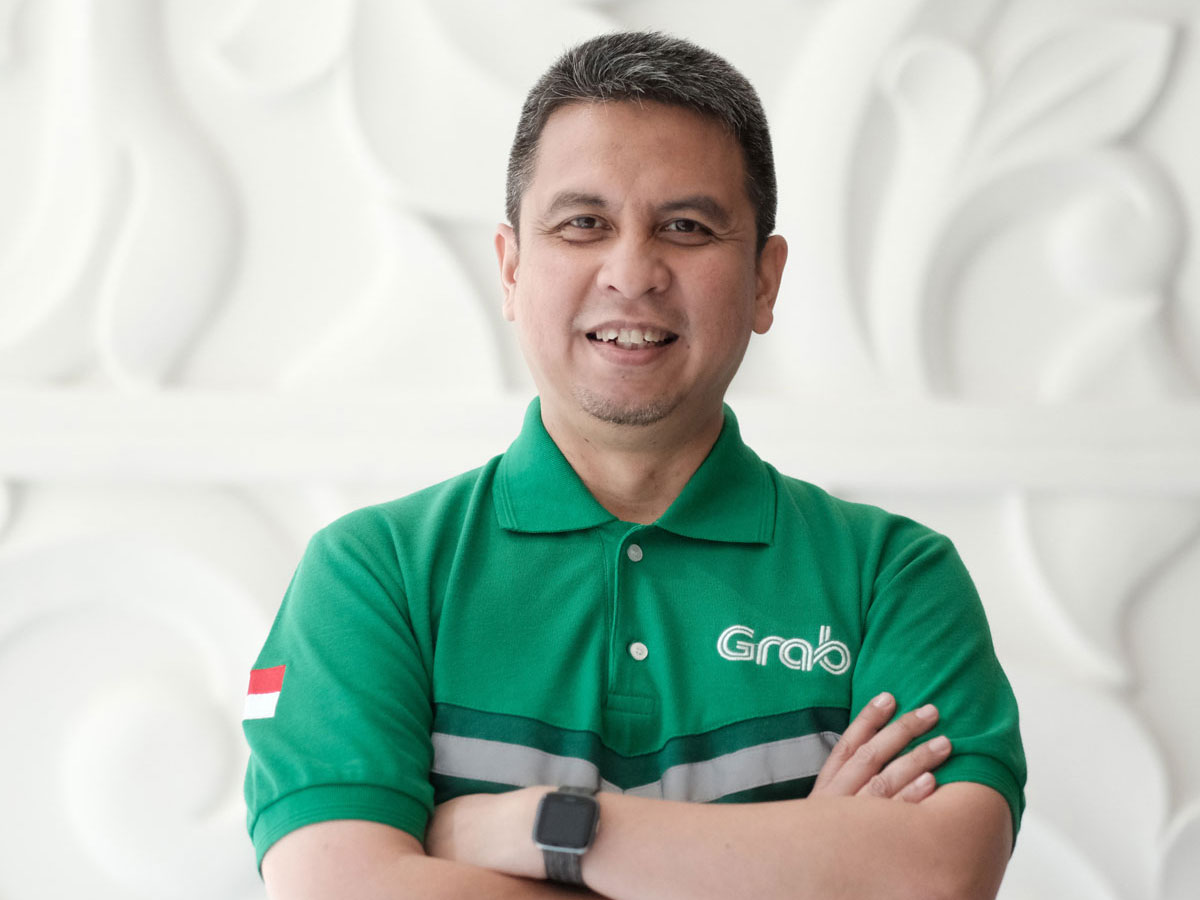The uncertain times caused by COVID-19 have driven many of us to work outside of our comfort zones and to make innovations as we adapt to the new normal and strive to survive until the end of the pandemic and for many years to come.
As the number of those infected by the novel coronavirus steadily rises – to more than 2.65 million cases globally as of Thursday, April 23 – many people have shown compassion by helping others in need, even while they are struggling to get through pandemic themselves.
Assistance for those impacted by the virus comes from many different groups, ranging from individuals who offer small but impactful help such as doing errands for people at risk of contracting COVID-19 to big corporations giving various donations and empowering the larger community.
Among these big corporations that strive for the welfare of many is the tech company Grab Indonesia, which has been introducing various new initiatives to overcome difficulties caused by the COVID-19 outbreak. Recently, Grab Indonesia signed a partnership with the Agriculture Ministry in which the tech company will provide delivery services to help distribute meat and dairy products from poultry companies to consumers across Indonesia.
In between new initiative launches and a tight schedule of video conferences, the president of Grab Indonesia, Ridzki Kramadibrata, shared stories behind the company’s strategic moves that aim to empower the communities of drivers, merchant partners and MSMEs and provide convenience for Indonesian citizens who have to comply with the large-scale social restrictions (PSBB).
Question: How does the COVID-19 outbreak affect Grab in general?
Answer: It’s an unprecedented time, not just for Grab but all of Indonesia. Many livelihoods have been affected. While there are still many uncertainties around the full impact of the pandemic on our economy and community, we believe we have a responsibility to step up and do what we can to ensure that we all pull through this together as a nation. There is a saying that crisis is the mother of invention. As we adhere to the mass social distancing order, daily routines and supply chains have been affected. But with the agility of our platform and our scale, we’ve been able to turn around new services and adjust our operations quickly to help plug the gaps that we see, for example, helping to ensure people can continue to access food and supplies, supporting our frontliners and ensuring that our driver partners can still earn a living through delivery jobs, even as transport has seen a sharp decline.
What is Grab’s idea of contribution to Indonesia?
MSMEs are the backbone of the Indonesian economy. They have also been some of the hardest hit as a result of the pandemic and the restrictions put in place to stop it. With people encouraged to stay at home to help prevent the spread of the virus, many MSMEs – particularly those that have traditionally operated offline, are seeing their livelihoods take a hit. Our first priority is to do whatever we can to help them tide through this difficult time.
Digitization can be a lifeline to them. By helping small and traditional businesses quickly move online, Grab is helping them sustain income even as foot traffic to their physical businesses has slowed down. We do this through our services like GrabFood, GrabMart and GrabExpress. At the same time, by making more services and merchants available through the Grab platform, we are able to create more earning opportunities for our microentrepreneurs (driver and delivery partners).
Second, safety and hygiene, which has always been our top priority, is now more important than ever. We must keep our driver and delivery partners safe as they work hard to keep the economy going. And of course, we must help our merchants and customers stay safe too. We very quickly rolled out things like contactless delivery and daily temperature checking. We also collaborated with merchant and restaurant partners to improve the Integrated Safety Standards for Food Delivery Services that cover comprehensive cleaning procedures from food preparation and packaging, to shipping.
Third, to weather this storm, collaboration is key. We are glad to be able to provide our support to multiple government ministries to address the challenges that have emerged for the Indonesian community during this period, whether it’s to ensure people have convenient access to daily essentials or to help address the need for mass testing for COVID-19.
What initiatives are offered by Grab in order to be relevant to the people’s needs during the ongoing situation?<
The first things we did were to roll out processes and features to protect the safety of our customers, merchants and delivery partners. We introduced Contactless Delivery across multiple services: GrabFood, GrabExpress and GrabKios. We educated our merchant partners about taking measurements of the employees’ body temperatures before starting work and we instituted daily temperature reporting by our drivers and delivery partners. We also distributed 2,000 digital thermometer guns to our merchant partners.
Then, we started looking for ways to help more MSMEs stay open for business. With foot traffic to physical stores dropping, digital platforms offer merchants a way to keep business going. We introduced GrabMart, a daily delivery service for goods in Jakarta, Bandung, Makassar, Surabaya, Semarang, Yogyakarta and Bali, as well as GrabExpress Nalangin in 234 cities. This gives social sellers and small merchants a platform to continue selling their goods. With more merchants on our platform, our driver-partners have more earning opportunities. In fact, I would say they are playing a critical role as frontliners helping to keep the Indonesian economy moving. To further support them, we rolled out the GrabCare support package for driver-partners that includes financial and medical assistance, and we have also distributed thousands of staple food packages.
We’re also offering our resources and network to multiple government ministries as they roll out programs to help Indonesia fight the pandemic. GrabHealth is helping to alleviate some of the burden on hospitals by offering free in-app consultation for initial COVID-19 checks. We are also offering free COVID-19 testing for healthcare workers and our driver-partners. Working with the Ministry of Agriculture and major livestock and food supply partners, we are also helping to ensure that all Indonesians can continue to have convenient access to livestock and food products even as they stay home during PSBB, delivered via GrabExpress right to their doorstep.
How are the initiatives being received?
There are still many challenges presented by COVID-19 that we hope to help address. For now, we are encouraged by some of the stories we’re hearing from our merchant partners. There is one case in East Java in which a pharmacy named E-Medika in West Surabaya recorded a significant increase in sales. According to the pharmacy’s owner, Ratno Sanjoko, the increase was 60 percent despite the decline in customer visits to his physical store. Turns out the customers ordered goods from the pharmacy and used GrabExpress service for delivery.
We have also heard of one of Grab’s new features, GrabExpress Nalangin. How does it work?

GrabExpress Nalangin or GrabAssistant –similar to a Cash on Delivery (COD) service – allows customers to buy goods of up to Rp 200,000 (US$ 12.86) using the feature and make the payment on delivery. Customers can also use GrabExpress Nalangin Car if they prefer to buy more goods of up to Rp 1 million maximum.
Driver partners will be able to find a feature in their apps in which they can inform how much cash they have, and the value of the GrabExpress Nalangin orders they can receive will be adjusted accordingly. Otherwise, the driver partner could utilize the available funds in their OVO digital wallet for taking GrabExpress Nalangin orders. The latter is in the case where the merchant accepts payment through OVO.
How does Grab anticipate the possible decrease of buying power among customers?
This crisis has affected all of us as Indonesians in many different ways. What hasn’t changed for Grab is our focus on providing convenient, affordable services to Indonesians to address their everyday needs. We will make sure that even as they stay home, they will continue to be able to access daily essentials through our platform, whether it’s food, groceries or even data packages. At the same time, we will look out for our merchant partners, whose businesses have been affected too. For instance, we are working with restaurant partners to offer more affordable choices with more generous portions. We also put in place merchant support programs – helping merchants drive business through marketing initiatives and also reduce operational costs through a cashback program for common food ingredients and discounts on food packaging.
When you said that the demand for delivery service has increased while ride-hailing declines sharply, can you say that the new revenue from delivery covers the loss in ride-hailing?
Honestly, no. Grab’s transportation business has taken a hit due to the coronavirus outbreak. Our delivery business through GrabFood, GrabExpress and GrabFresh services in Indonesia has fared better than transport but has not fully offset the decline in transport.
In a crisis like this everyone is struggling in one way or another. So it’s important that we come together as a community and find ways within our capabilities to help each other out.
I have to say that I am especially grateful for our partners who continue to work hard under these trying conditions to deliver food, groceries and other services to our users. We thank them for all that they’ve done and for continuing to serve Indonesians during these trying times.
As a super-app, does Grab have an initiative to help users keep their health in check?

Yes, together with Good Doctor, GrabHealth has been appointed as a trusted partner of the Health Ministry to provide free preliminary COVID-19 telehealth screenings through our GrabHealth service, powered by Good Doctor, where users can consult doctors and get a screening to determine whether or not they may have COVID-19.
As for our driver partners, GrabHealth and Good Doctor have conducted the first phase of rapid testing for 1,000 health workers and Grab driver partners in Jakarta, free of charge. Next week we are expanding the free test to 9 other cities in 7 provinces in Indonesia.
So, Grab is making many adjustments and launching new initiatives within short periods of time during the COVID-19 outbreak, hence higher workload for Grabbers in the office. How do you ensure Grabbers’ health and welfare?
As a tech company, Grab has been familiar with remote working. The difference is, previously, some of us engage in video conference from the office while some others from different locations due to high mobility. Now there is nobody in the office.
We have also been conducting split operation, [in which Grabbers are] divided into team A and B, closely monitored by our safety and security team both inside and outside the office. Each team is strictly forbidden to meet. And if there is a Grabber who is infected with COVID-19, we will cooperate with the government to overcome the matter.







